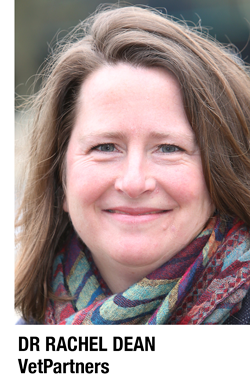A UK veterinary group is supporting the NHS during the coronavirus pandemic by donating ventilators and personal protective equipment.
Veterinary practices that are part of York-based VetPartners have rallied to support their local hospitals by providing vital equipment, including disposable masks, aprons and gloves, for human health workers on the ‘front line’.
Some VetPartners practices have also been able to donate ventilators to hospitals to help treat patients who may have to be hospitalised with covid-19.
Under social distancing guidelines from the veterinary profession’s governing body, the Royal College of Veterinary Surgeons, routine work has been postponed and vets are seeing only emergency and urgent cases at the practice, while offering routine care via telephone and video. The
changes have enabled practices to donate surplus PPE.
MASKS AND GOWNS
 Donating the vital equipment will be not risk animal welfare or the health of vets and veterinary nurses, and practice teams have even started making material masks and gowns, which can be washed at a high temperature with detergent, to replace disposable equipment.
Donating the vital equipment will be not risk animal welfare or the health of vets and veterinary nurses, and practice teams have even started making material masks and gowns, which can be washed at a high temperature with detergent, to replace disposable equipment.
A sewing pattern has been shared among some VetPartners’ practices if team members want to get crafty and start making material gowns and masks as an alternative to the plastic protective clothing being donated to hospitals and hospices.
Dr Rachel Dean, VetPartners director of clinical research and excellence in practice, said: “We want to help the awesome NHS staff and carers who are caring for human patients if they request extra items of personal protection equipment. Some of our practices have already donated ventilators, masks, aprons and gloves and we are more than willing to help.
WORKING TIRELESSLY
“Human healthcare teams are working tirelessly round the clock to look after patients and, as well as being very thankful to them, we want to support them in any way we can. We have disposable masks and aprons we can donate, too, if we receive requests to help them as they may need additional equipment in coming weeks.
“When our practice managers and clinical directors heard of this, they were only too happy to help and we can look at some of the alternatives of the old-style material garments that can be washed and re-used without causing risking the health of pets.
“Some of our practices are even encouraging at-risk groups who are self-isolating at home to help create the long sleeve clothing gowns and face masks for veterinary teams.”
With 5,495 team members working across nearly 500 sites, VetPartners has contingency plans in place to help practices to continue to provide a service while coronavirus continues to spread across the UK.


